Wooing voters with words, passion and a smile

A bag of chocolates and a seat in parliament can be theirs – but candidates have to earn the prize through meetings, discussions and a show of political conviction.
Men in white overalls emptying styrofoam boxes into an oval tub-like Donald Judd fountain are certainly an unusual sight. As plastic shopping baskets are lowered into the water steam begins to rise momentarily, covering the scene in Winterthur’s old town.
It’s a sunny late summer day, on the eve of a decision by parliament in the Swiss capital to phase out nuclear energy. One of the men in white overalls speaks into a megaphone: “We want to build up a head of steam and put pressure on politicians.”
Next to the fountain is a giant inflatable yellow barrel, warning of nuclear waste, a table put up by the local Green Party and half a dozen activists. One of them is Marlies Bänziger, a parliamentarian who is standing for re-election to the Swiss parliament on October 23.
She is trying to convince passers-by to sign initiatives for a green economy and for the closure of nuclear power plants in Switzerland.
“It is part of my regular activities as a politician,” Bänziger says. It may not be the busiest spot in town, but a steady trickle of people approach the fountain, teenagers from a nearby school, as well as friends with whom she has a quick chat.
There are no prominent posters of her in this street and no other personal promotion material except for some flyers and beer mats showing her face and those of her fellow party candidates.
Having grown up politically in the grassroots movements of the 1980s Bänziger has remained faithful to her ideals.
“I love working with others towards a common goal and having a good time together,” the 51-year old member of the House of Representatives says.
Market day
Five days later and about 100km west of Winterthur, Sibylle Probst is also collecting signatures in the streets, but for very different political ideas. The regular Saturday morning street market in Solothurn is still to get busier and the blanket of autumn fog will only lift towards noon.
Probst entered politics at the local level a few years ago and is running her first election campaign. She was asked by the Swiss People’s Party whether she would like to stand alongside six men, including two seeking re-election.
Solothurn, a picturesque town at the foot of the Jura hills, is “lefty” territory and she is under no illusion that it would be a big surprise if she succeeded in clinching a seat in the parliamentary elections.
“Campaigning is a fascinating experience,” she says, adding however that it is time-consuming and occasionally “hard work”. She appears to take it in her stride in Solothurn, soliciting support for proposals to crack down on immigration, against the use of standard German in kindergarten and for tax breaks.
Behind her a rival political party is attracting the attention of shoppers and just a few steps away the local French-speaking community is promoting an event with a pioneer of solar energy.
Face to face
Nearly a generation older, and with a total of six election campaigns under her belt and a 17-year career in parliament, Brigitta Gadient is about to turn a page in her life. She is not aiming for a new mandate, but has many memories and a piece of advice for candidates.
“It’s crucial to keep a sense of humour and to be able to laugh at oneself,” says Gadient, a member of the People’s Party before she joined the centre-right Conservative Democrats three years ago.
Campaigning primarily means face-to-face meetings with people from different walks of life and in Gadient’s experience voters respect “a clear opinion” even if it is different from their own.
Numerous events with local political parties and associations in her large and mainly mountainous constituency of Graubünden were an essential part of her political work and the media played a minor role up to a few years ago.
But in her words there was “no American-style campaign” with door-stepping and the like, and financial resources were limited.
Time and money
Thirty-two year old newcomer Probst says her campaign budget is SFr5,000 ($5,452) most of it hopefully paid by sponsors. Material and moral backing is also being provided by family and friends. They helped set up a website and pay for car stickers and personal campaign posters.
Probst, a trained psychologist and officer in the Swiss militia army, is investing much time in local party rallies in the run-up to the vote. A highlight of her campaign is a panel on security, organised by the women’s chapter.
She says it is tough as a young woman to hold her own against seasoned male colleagues in her party. A hint about the internal competition and lack of support does not go unnoticed.
As someone who considers herself easy going with people, she tried door-to-door canvassing in her campaign, found it “interesting” but not really efficient.
Network of friends
Green Party parliamentarian Bänziger in Winterthur may have a budget which is eight times higher than that of Probst, but it is still way short of the SFr100,000 upwards spent by top candidates.
Bänziger can also count on supporters and has the backing of her two children who have offered to put up posters of her and help her with her homepage. Not least, she has built up a network of close friends she can also rely on when the going gets tough.
The election campaign has dominated her agenda for weeks, including the weekends. The former teacher also tours her Zurich constituency together with a party colleague and makes presentations on a sustainable economy.
Bänziger is categorical about keeping her privacy in the campaign. She says she is not willing to “sell her soul” to the media or anybody else for a seat in parliament.
The fear of suffering defeat on October 23 sometimes creeps up on her, but she tries to be calm. “Either it works – or it does not.” She wants to believe that it is possible to be faithful to herself and win voters with her political convictions.
Reward
Surprising perhaps, but Probst’s position does not seem fundamentally different. For now though she is off to the next event, a local village fair with a cattle show. Quite a change from Solothurn’s small town urbanism. “I like the country folk,” she smiles.
Bänziger for her part continues her day in public at a panel discussion with two other parliamentarians from rival parties. It turns out to be a somewhat lacklustre debate among politicians in front of an eager audience of less than two dozen in an underground venue, named Coalmine.
At the end the women on the podium receive a gift bag from the top pastry shop and Bänziger is equally happy about the words of encouragement from some members of the audience.
A record 3,458 candidates, including more than 1,100 women, have enlisted for the October elections – an increase of nearly 11% on 2007.
Nearly 50 parliamentarians will not stand for re-election.
Parliament is made up of the 200-member House of Representatives and the 46-strong Senate.
Parliamentary elections in Switzerland take place every four years at the end of October.

In compliance with the JTI standards
More: SWI swissinfo.ch certified by the Journalism Trust Initiative

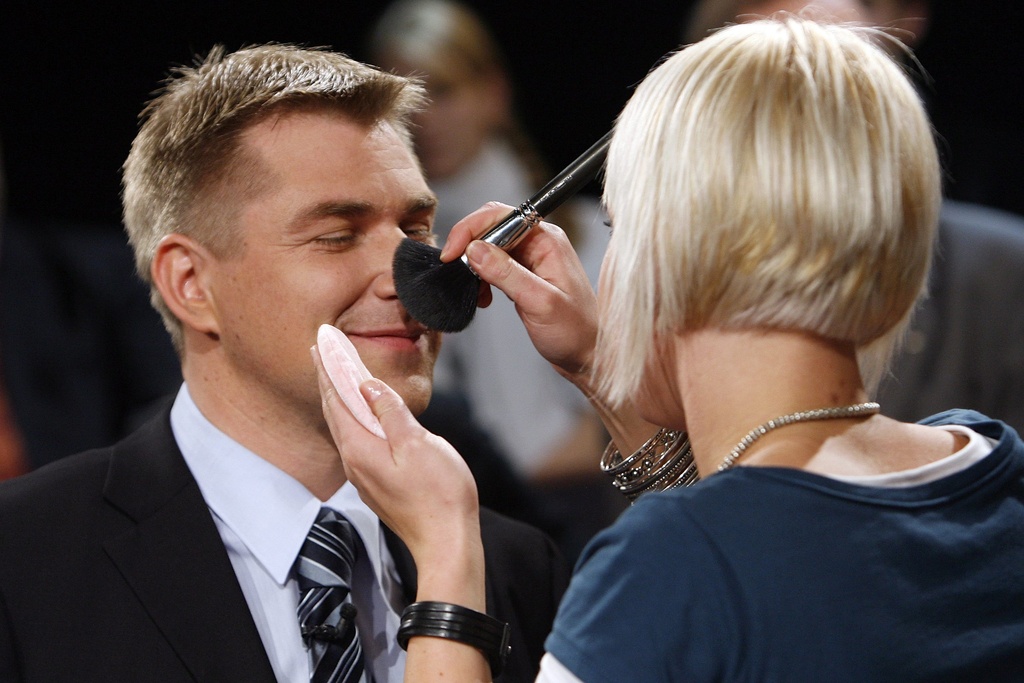
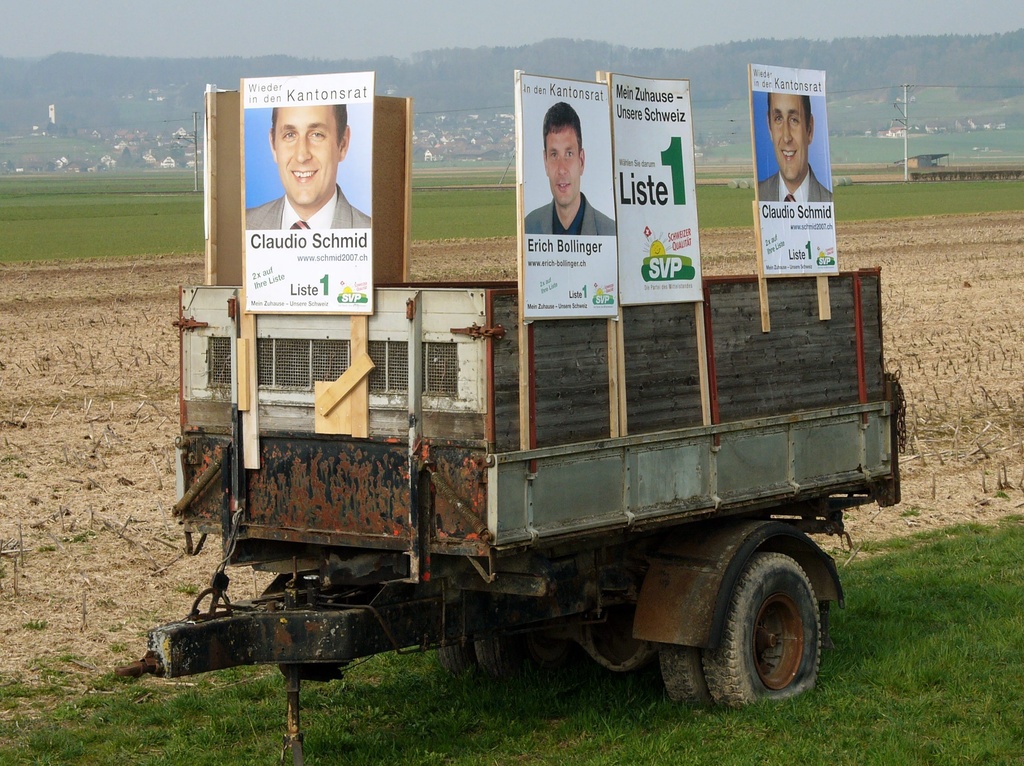
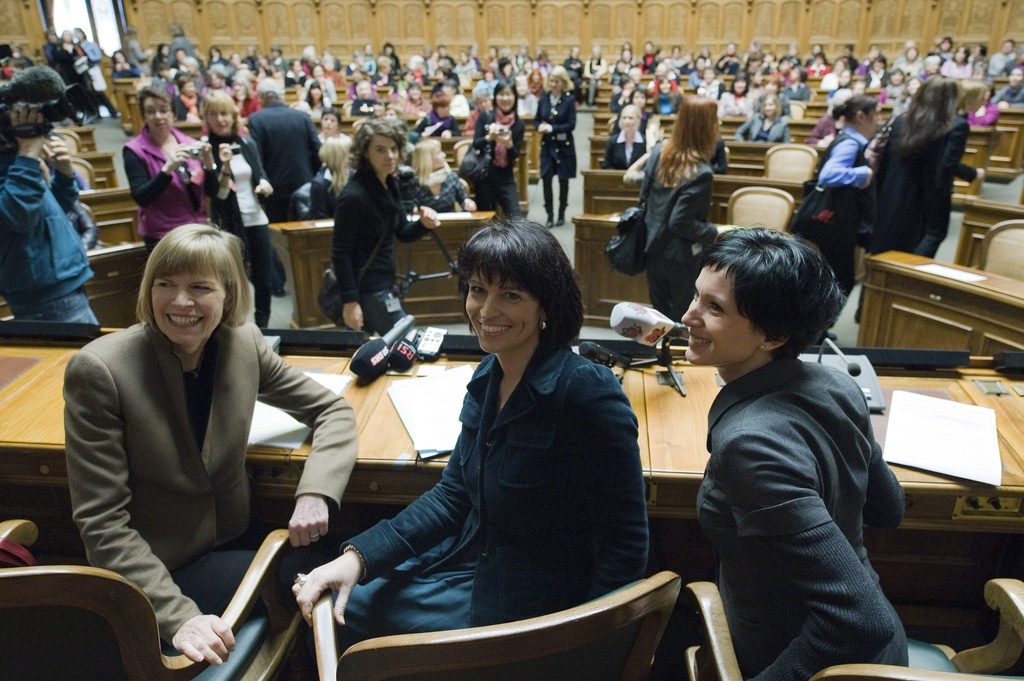
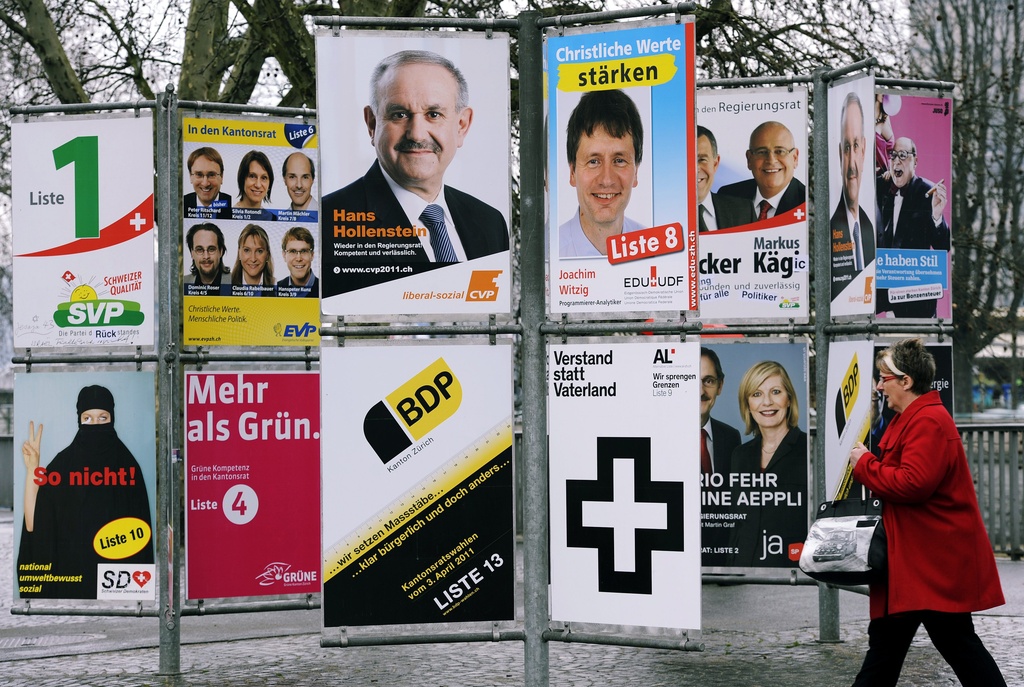
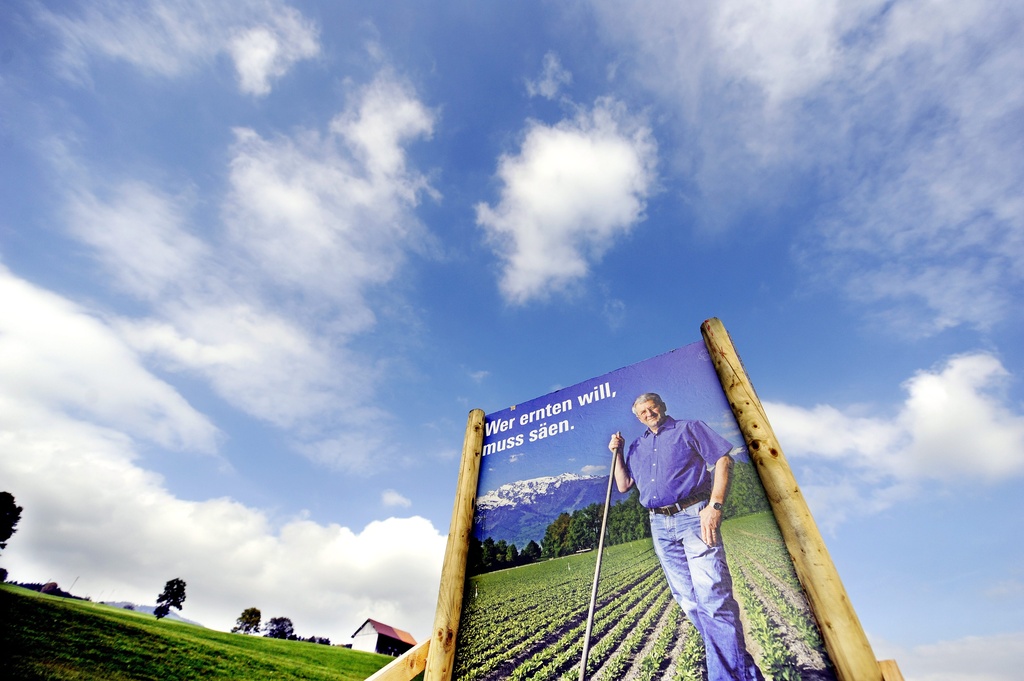
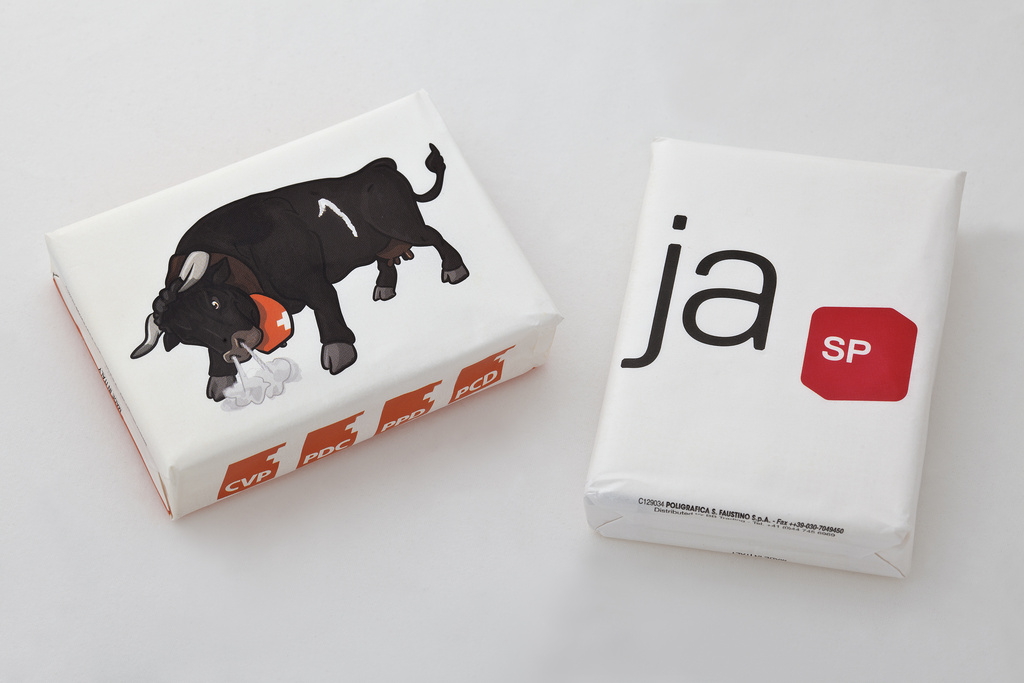
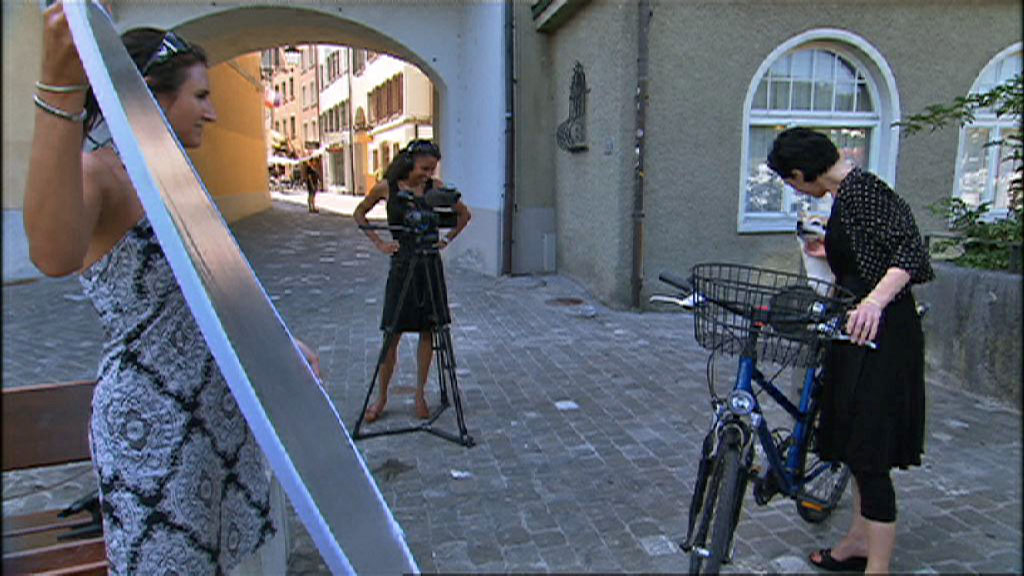
You can find an overview of ongoing debates with our journalists here. Please join us!
If you want to start a conversation about a topic raised in this article or want to report factual errors, email us at english@swissinfo.ch.